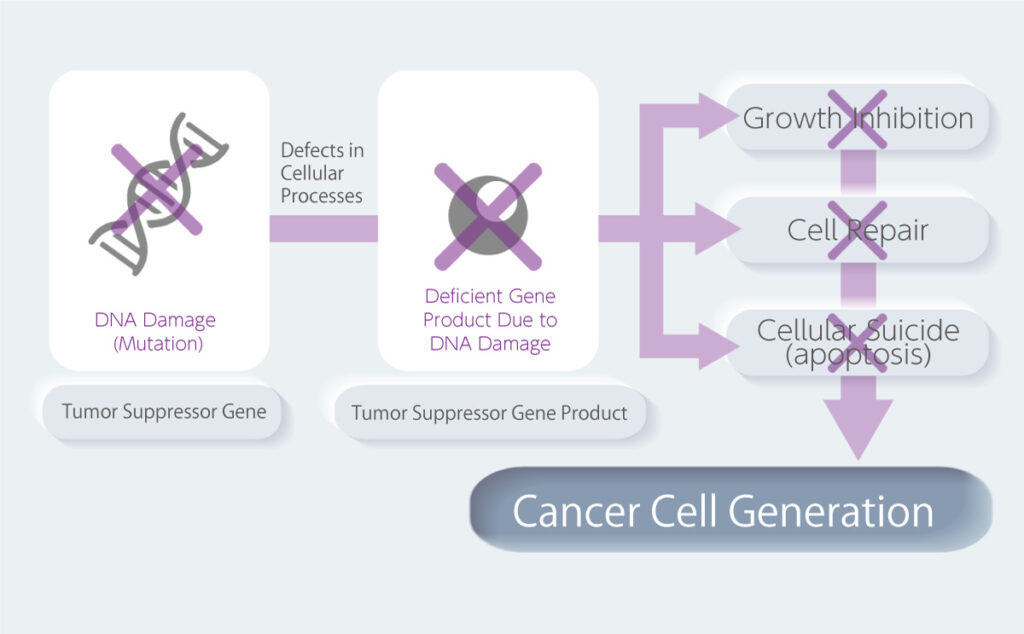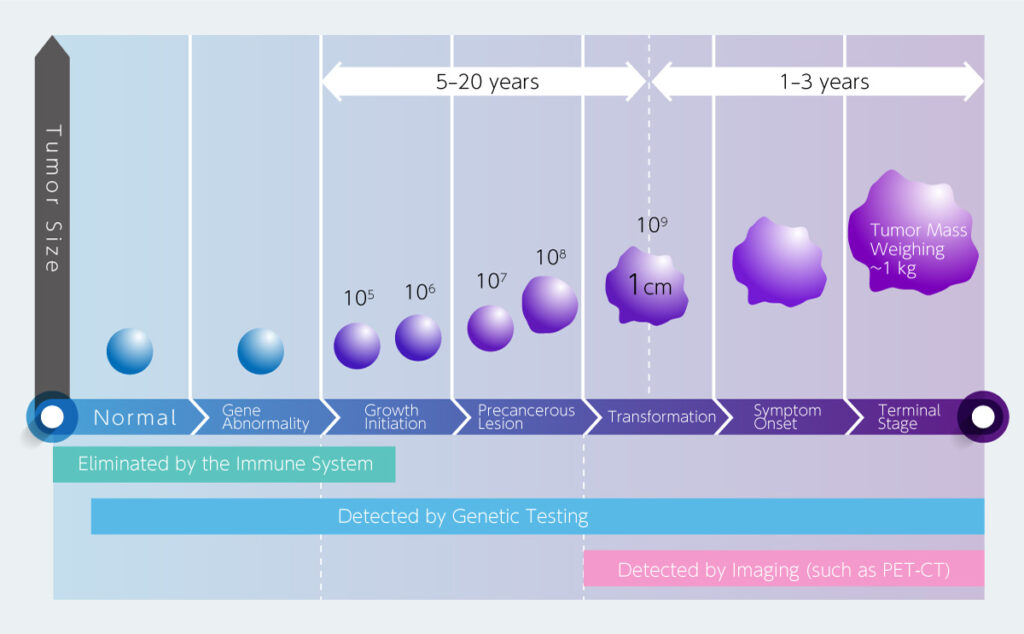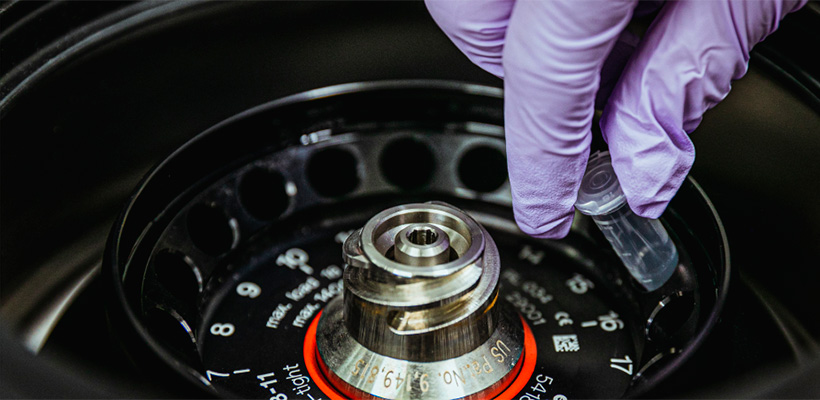Genetic Testing
Genetic testing empowers much earlier evaluation of cancer risk compared to diagnostic imaging or traditional markers
Genetic diagnosis identifies clinically relevant abnormalities at gene level—enabling us to identify even precancerous cells that exhibit abnormalities but have not yet developed into tumors.
The Hirahata Method of genetic testing developed by HIC Clinic performs 251 different assays. By identifying genetic abnormalities in this manner, we can provide early determination of your cancer risk, assessment of cancer stage, and the likelihood of your treatment response.
We All Carry the Genes for Cancer
The answer is because we also have genes called tumor suppressor genes. These suppressor genes inhibit the function of oncogenes, and by doing so they effectively prevent the development of cancer.
In most cases, the tumor suppressor genes sufficiently block the action of oncogenes. The transformation of normal cells to malignant cells therefore occurs when one or both of the following conditions are met:
1) Gain-of-function mutation(s):
when a new oncogene is brought about by a genetic mutation caused by aging or lifestyle factors such as smoking or exposure to UV radiation.
2) Loss-of-function mutation(s):
when a tumor suppressor gene fails due to genetic mutation or due to a decrease in its gene copy number.

Genetic Testing Enables Ultra-Early Detection of Cancer Risk
HIC Clinic’s genetic testing uses assays for 251cellular characteristics to quantify the following parameters:
- Overexpression of oncogenes
- Mutation/methylation of tumor suppressor genes
- Concentration and length of cell-free DNA
These analyses address the following questions at gene level:
・How active are my oncogenes?
・Are my tumor suppressor genes damaged?
・Are my tumor suppressor gene copy numbers deficient?
When standard imaging modalities or traditional tumor markers are used, patients can be diagnosed with cancer only after the tumor mass reaches approximately 5 mm in diameter (i.e., 108 – 109 cells). In contrast, genetic testing can detect even very small, precancerous lesions comprising approximately 105 cells. As a result of genetic testing, we are therefore able to initiate preventive therapy or anti-cancer treatment at an ultra-early stage.

The Process of Genetic Testing for Cancer
Because the cells in your body continue dividing, your health condition is in a state of constant flux. So even if our tests find no genetic abnormalities, we still recommend that you continue to undergo genetic testing for cancer approximately once a year.
Treatment options for different cancers can vary greatly and your personal treatment options will be based specifically on the number and types of genetic abnormalities detected in your tests.






